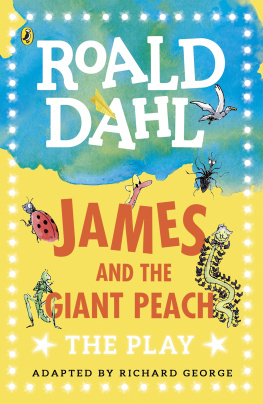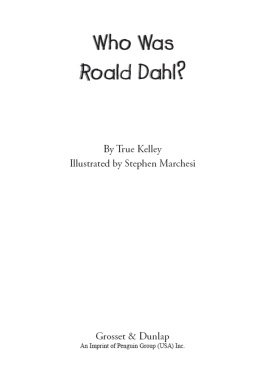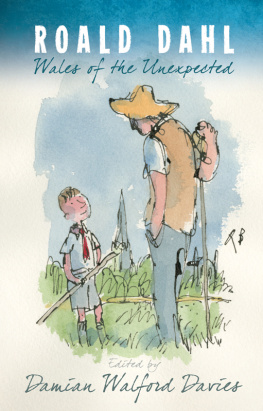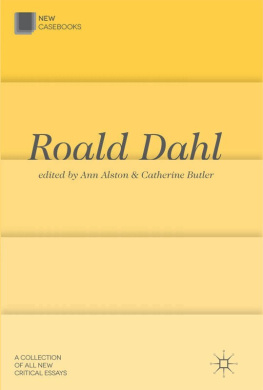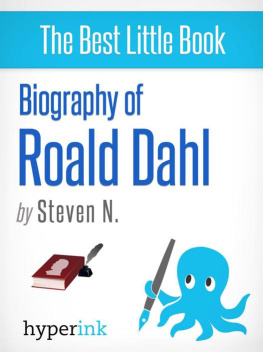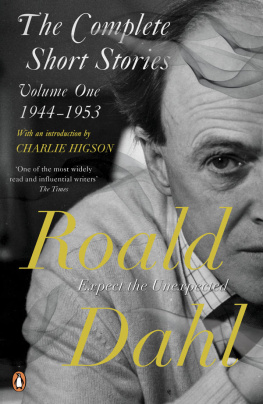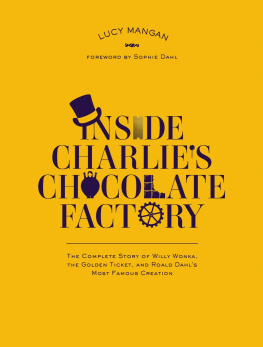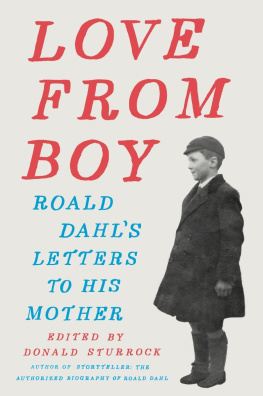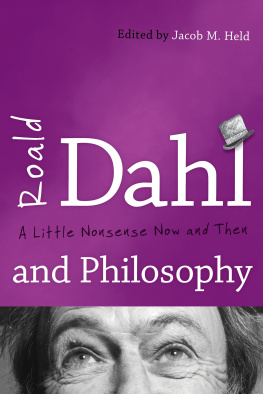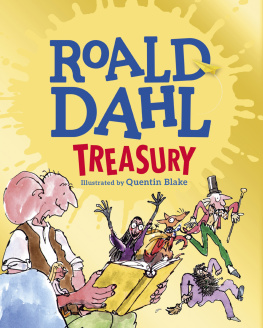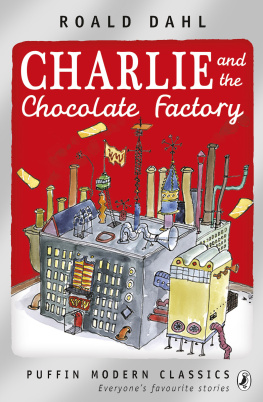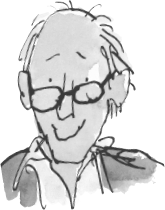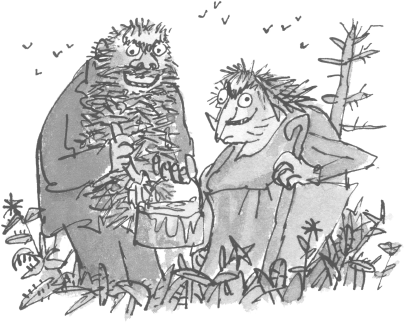
PUFFIN
PUFFIN BOOKS
Published by the Penguin Group
Penguin Books Ltd, 80 Strand, London WC2R 0RL, England
Penguin Group (USA) Inc., 375 Hudson Street, New York, New York 10014, USA
Penguin Group (Canada), 90 Eglinton Avenue East, Suite 700, Toronto, Ontario, Canada M4P 2Y3 (a division of Pearson Penguin Canada Inc.)
Penguin Ireland, 25 St Stephens Green, Dublin 2, Ireland (a division of Penguin Books Ltd)
Penguin Group (Australia), 707 Collins Street, Melbourne, Victoria 3008, Australia (a division of Pearson Australia Group Pty Ltd)
Penguin Books India Pvt Ltd, 11 Community Centre, Panchsheel Park, New Delhi 110 017, India
Penguin Group (NZ), 67 Apollo Drive, Rosedale, Auckland 0632, New Zealand (a division of Pearson New Zealand Ltd)
Penguin Books (South Africa) (Pty) Ltd, Block D, Rosebank Office Park, 181 Jan Smuts Avenue, Parktown North, Gauteng 2193, South Africa
Penguin Books Ltd, Registered Offices: 80 Strand, London WC2R 0RL, England
puffinbooks.com
First published 2012
Text copyright Michael Rosen, 2012
Illustrations copyright Quentin Blake, 2012
Additional illustrations by Rowan Clifford, 2012
Archive photographs copyright Roald Dahl Nominee Ltd, 2012
Cover illustrations by Quentin Blake
Cover photograph by Michael Dyer
All rights reserved
The moral right of the author and illustrators has been asserted
ISBN: 978-0-14-133520-9
ABOUT THE AUTHOR
MICHAEL ROSEN was brought up in London. He originally tried to study medicine before starting to write stories and poems. His first book for children, Mind Your Own Business, illustrated by Quentin Blake, was published in 1974 and since then he has written many award-winning picture books and poetry collections. Michael spends all of his time writing books and articles for newspapers and magazines, visiting schools and libraries and performing his poetry, making radio programmes about words and language, and teaching at universities on reading and writing. Michael has received many honours and was made the fifth Childrens Laureate in 20072009.

Roald Dahls motto
My candle burns at both ends;
It will not last the night;
But ah, my foes, and oh, my friends
It gives a lovely light!
Edna St Vincent Millay
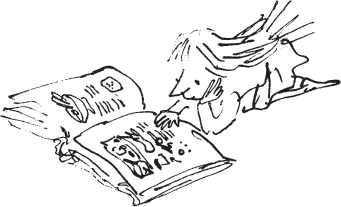
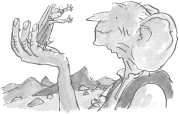
For Emma, Elsie and Emile
and for Joe, who was there for
Roald to talk to
Introduction
I first met Roald Dahl in a television studio in 1980. He was already very famous, though perhaps not quite as mega-famous as he is today. Hed written James and the Giant Peach, Charlie and the Chocolate Factory, Fantastic Mr Fox and Danny the Champion of the World. But now he had a new book out. And so did I. We were both appearing in the same TV programme because someone thought that we were writing similar kinds of stories. To tell the truth, I was quite excited. I was going to meet a writer whose books millions of children loved. But there was someone else with me who was even more excited than I was. This was my son Joe, who was about five years old.
In TV studios, theres often a little room away from all the cameras, where you wait until its your turn to be filmed. Its called the green room even though its not usually green. Joe and I sat on one side of this particular green room and Roald Dahl was on the other.
I noticed that he didnt really look at me even though I looked at him and tried to say hello. Instead, every now and then, Roald Dahl looked across at Joe. This went on for some time. After a bit, Roald caught Joes attention and said to him in quite a stern way, Come here.
Joe looked at me and I nodded. So he went over and stood in front of Roald Dahl. And, as everyone will tell you, Roald was very big even when he was sitting down. Big legs, big body, even a big head. For a little boy, he must have seemed huge. A real giant.
Then, in a big, booming voice, Roald Dahl said to Joe, Whats that growing on your fathers face?
Joe looked across the room at me and then back at Roald Dahl. In a small voice, he said, A beard?
Exactly! said Roald Dahl. And its disgusting!
Joe looked unsure. Was this a joke or was it serious? He smiled, but only a little.
Roald Dahl went on, Its probably got this mornings breakfast in it. And last nights dinner. And old bits of rubbish, any old stuff that hes come across. You might even find a bicycle wheel in it.
Joe looked back again at me and my beard. I could see on his face that there was a part of him that believed what he had just heard. After all, Roald Dahl hadnt asked Joe what he thought might be in my beard. Hed just told him in that firm, very sure voice what was actually, really and very definitely in my beard.
And thats what Roald Dahl was like. When he spoke, he did sound very, very certain even if what he was saying was extraordinary, amazing, weird, fantastical or downright crazy.
Soon after that, Roald and I were called into the studio me to talk about my book about a giant flea that lived in the London Underground and Roald Dahl to talk about can you guess? The Twits, of course.
Its all a long time ago now, but I seem to remember that the interviewer asked us what we thought were the ingredients of a good story for children.
Above all, Roald Dahl told the interviewer, it must be FUNNY.
Afterwards, we returned to the green room, picked up our coats and went home. I think he said goodbye to me. He certainly said goodbye to little Joe, and had a few words of wisdom for him too. He leaned towards my son and said, And dont forget what I said about your fathers beard.
This book is about one of the worlds greatest storytellers. Roald Dahl tells the story of his life in Boy and Going Solo. And, like Roald Dahl did, I want to tell you about things that happened to him that were deeply interesting and, more often than not, utterly, utterly amazing. But, most of all, I want to look closely at his writing.
Im a writer and when I meet children, they often ask me how I got into writing. Why did I start? Where do I get my ideas from? Where do I write? How long does it take me to finish a book or a poem? Whats my next book about?



